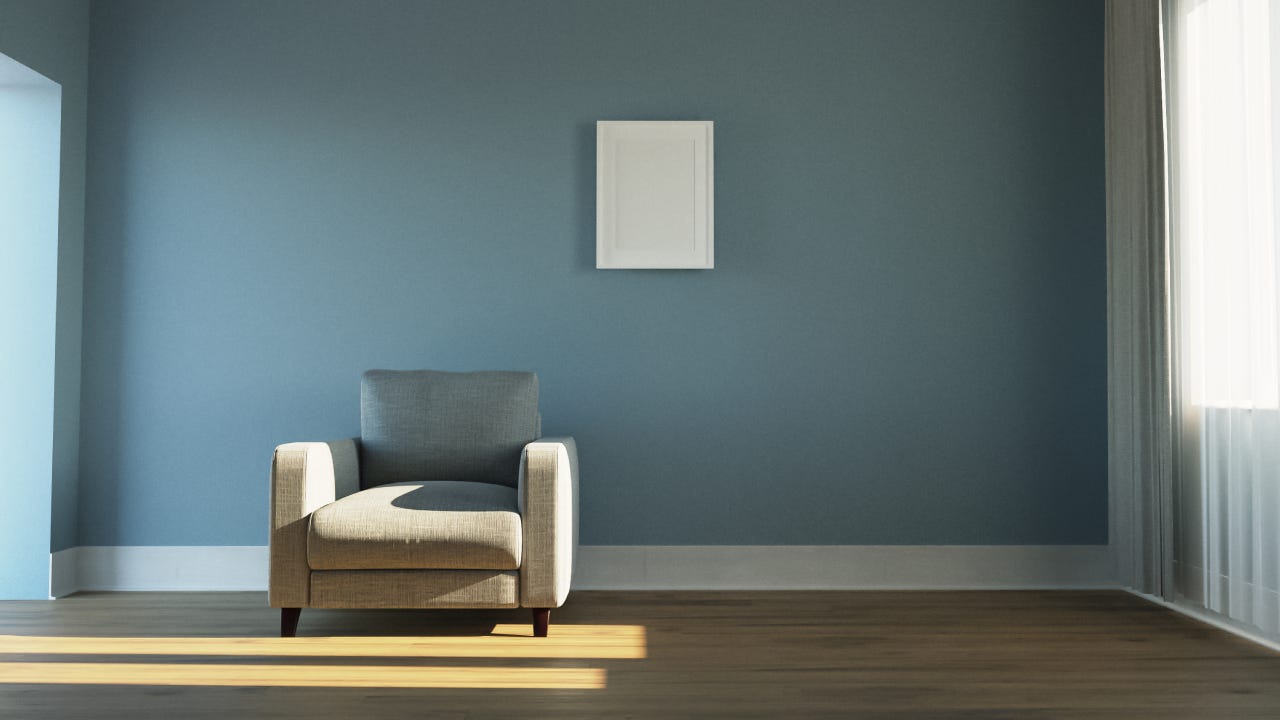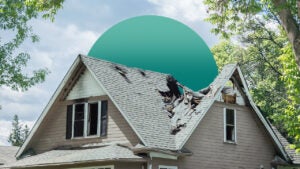What is vacant home insurance and how does it work?

Key takeaways
- Vacant homes have a higher risk of damage or vandalism.
- Vacant home insurance can be included as an endorsement to a standard homeowners policy or purchased as a standalone policy, but it generally does not cover personal property or water damage.
- The criteria for a home to be considered vacant varies among insurance companies, but typically it is when the home is not occupied for 30 days or more.
- To purchase vacant home insurance, homeowners should research and compare quotes from different companies and consider factors such as coverage options, discount availability and their budget.
If your home is empty because you’re doing repairs, waiting to move into it or some other reason, it is at a higher risk of damage or vandalism. After all, no one’s there to maintain it or deter intruders. Having vacant home insurance can help protect you financially. Learn what vacant home insurance covers, who needs it and how to purchase it.
What is vacant home insurance?
Vacant home insurance is a type of property insurance that specifically covers homes that are not lived in for an extended period, usually 30 days or more (although the duration of time varies by company). Standard home insurance policies usually do not cover homes that are left vacant because those properties generally carry more risk than occupied homes. For example, vacant homes may be more likely to be vandalized than occupied ones. Additionally, if a storm hits, the damage could be worse than if a homeowner had time to prepare and act quickly to make temporary repairs.
Vacant home insurance can be obtained as part of an endorsement to your current home insurance policy or as a standalone policy. If you purchase vacant home insurance as its own policy, it is usually written as a DP-1 policy form. This policy form is not to be confused with a standard homeowners policy (HO-3) or a rental property policy (DP-3).
It’s also important to note that there is a difference between vacant and unoccupied homes. Homeowners intend to return to their unoccupied homes — like a seasonal residence — in the foreseeable future, whereas a vacant home is truly not being used for a significant length of time.
What does vacant home insurance cover?
Every property insurance company treats vacant home insurance differently. Generally, vacant property insurance under the DP-1 policy form covers the physical structure of your home against perils such as:
- Hail, fire and lightning
- Smoke
- Windstorm damage
- Explosions
- Riots and civil commotion
Keep in mind that a DP-1 does not usually offer personal property coverage or coverage for water damage. Vacant home insurance endorsements might include more coverage than a DP-1 policy, as it is an endorsement added to a standard homeowners policy. An insurance agent can help you understand the different coverage options available based on whether the insurer offers a separate policy or an endorsement to your current policy.
Who needs vacant home insurance?
Every insurance company has different criteria for what it considers to be a vacant home, including the length of time the property is empty. You may need vacant or unoccupied home insurance if you:
- Recently bought a house and are not planning to move in within 30 days
- Inherited property and do not intend to move into the home within 30 days
- Are selling your home and the personal property has been removed from the home
- Have moved out of your home and are preparing to use it as a rental in the future
- Are not living in your home while it undergoes extensive renovations
For homeowners who own their property outright, vacant home insurance is optional just like standard home insurance, although financial professionals still recommend purchasing a policy to financially protect yourself. But if you have a mortgage on your vacant home, your lender will likely require you to purchase vacant home insurance.
How to buy vacant home insurance
Buying vacant home insurance is similar to buying standard homeowners insurance. You might even be able to purchase a standalone policy or an endorsement through your existing homeowners insurance company. The following considerations can help you find the best policy and price.
Consider what you’re looking for from an insurance provider
Before you begin requesting quotes, it can help to think through your insurance priorities and budget. For example, you might want a carrier with a strong digital presence so you can manage your account online, or you may want a company with positive reviews. If your budget is tight, you could look for a company that offers discount opportunities. Knowing what you’re looking for can make the shopping process simpler.
Research the best vacant home insurance companies
Once you know what you’re looking for from an insurance company, it’s time to search for insurance carriers. The best vacant home insurance companies may not always be the cheapest. In starting your search, check to see if your home insurance provider offers an endorsement or standalone policy for vacant homes. If so, you might qualify for a bundling discount. If you want to buy a separate policy, it might be a good idea to shop around for providers that offer vacant home coverage in your state. Pay special attention to each insurer’s coverage options, add-ons and discounts.
The following companies offer vacant home insurance. However, you may need to expand your search as not every carrier offers this form of home insurance in every state.
Get quotes to find the cheapest vacant home insurance
The next step is to get quotes from the companies you researched. For the most accurate quote, call an agent and explain your situation. They can recommend an appropriate amount of coverage, help you choose your policy limits and see if you qualify for any discounts. You might want to get quotes from a few different companies so you can compare them and see which company is offering the best coverage for your needs at the best price. Vacant property insurance commonly costs as much as 50 or 60 percent more than a standard homeowners policy, so be prepared for a potentially hefty estimate.
Set up a policy
The last step is to finalize a vacant home policy or add the endorsement to your current policy for your coverage to be in effect. If you are setting up a vacant homeowners insurance policy to replace your standard homeowners insurance policy, make sure to avoid a lapse in coverage. Your insurance agent can guide you through the process.
Is there a difference between vacant home and unoccupied home insurance?
Vacant homeowners insurance and unoccupied homeowners insurance are not the same. When a home is vacant, it usually requires a separate policy or endorsement to be adequately covered should an incident occur.
An unoccupied home means that the homeowner is away from the property but intends to return. The utilities are still hooked up, for example, and there is likely furniture in the home. In cases like this, generally, a standard homeowners insurance policy will be needed to cover the home. Seasonal or vacation homes are commonly unoccupied for part of the year but aren’t truly vacant since the homeowner is still using the space. Check with your insurance company to see how long your home can be unoccupied before you would need vacant home insurance.
A vacant home, on the other hand, is one that is currently unused for reasons other than seasonality. A home may become vacant when it sits on the market for a period of time after the owners have moved out, if it is undergoing extensive and time-consuming renovations or if a rental home is between tenants for a significant length of time.
Reviewing the details of your personal situation with a licensed insurance agent can help you determine what type of homeowners insurance you need for your property.
Frequently asked questions
Why we ask for feedback Your feedback helps us improve our content and services. It takes less than a minute to complete.
Your responses are anonymous and will only be used for improving our website.
You may also like

Homeowners insurance vs. co-op insurance vs. condo insurance

What is a home insurance binder?

Mortgage insurance vs. homeowners insurance: What’s the difference?

What is homeowners insurance and how does it work?


